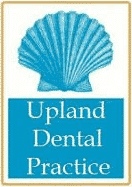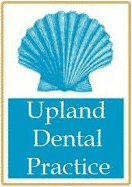The way we look at dental technology has changed when we discovered that titanium implants can integrate or fuse with the human bone. Dental implants have given a new hope for those who are wanting to address tooth loss with a more reliable and long-lasting restoration. But not everyone is a fan of dental implants.
Whether due to cost, health reasons, or personal preferences, many people seek alternatives to dental implants. So, if you’re looking to replace a missing tooth with a cheaper and less invasive alternative, this article is for you.
Several effective alternatives to dental implants exist, each suited to different needs and circumstances. Read along to learn more!
Don’t Want Implants? Here Are Your Options
Dental implant alternatives include dental bridges, dentures, resin-bonded bridges, flippers (partial dentures). and implant-supported bridges. Let’s delve deeper into each option.
Dental Bridges
A dental bridge is a fixed or permanent solution for replacing one or a row of missing teeth. These prosthetic devices are anchored to natural teeth to bridge the gap created by missing teeth. This dental appliance includes two parts: an abutment (the support) and pontics or artificial tooth.
Pros:
- Can be made to match the natural appearance of your tooth.
- Prevents adjacent teeth from shifting.
- Offers a fixed, non-removable, thus more reliable solution.
Cons:
- Requires strong, healthy adjacent teeth.
- Can lead to wear on supporting teeth.
- Typically costs more than removable options.
Eligibility: Dental bridges are ideal for individuals with one or two missing teeth and healthy supporting teeth.
Maintenance: Bridges require regular brushing and flossing, especially underneath the artificial tooth, to prevent plaque buildup.
Lifespan: In the absence of severe and extensive complications, the life expectancy of dental bridges can last between five to eight years.
Costs: The cost of dental bridges varies, in California, for instance, it falls between $1,500 and $5,000, depending on materials and complexity.
Dentures
Despite being often associated with old age, dentures must be the most versatile and cost-effective way to replace missing teeth. They come in full, partial, and implant-supported varieties.
Full Dentures: Recommended for individuals who have lost all their teeth, full dentures restore functionality and appearance. These dental prosthetics fit snugly over the gums and palate, held in place by suction or adhesive.
Partial Dentures: Partial dentures are suitable for those missing some teeth. They attach to the remaining natural teeth using metal clasps or precision attachments.
Implant-Supported Dentures: These dentures use dental implants as anchors, offering enhanced stability and improved bite functionality.
Pros:
- Affordable and customizable.
- Suitable for various levels of tooth loss.
Cons:
- Can feel less secure than fixed options.
- Require adjustments over time.
- May impact speech and chewing initially.
- Doesn’t look as natural as dental implants.
Eligibility: Dentures are ideal for almost all patients seeking a non-invasive solution for multiple missing teeth.
Maintenance: Daily cleaning and regular adjustments are necessary to maintain their fit and hygiene.
Costs: Partial dentures typically range from $700 to $1,800 and full dentures cost $1,000 to $3,000.
Lifespan: A review of 27 studies involving 3,023 dentures found an average survival time of about 10 years, with a range from 4.5 to 20 years. Subgroup analysis revealed:
- Maxillary dentures: 10.3 years on average
- Mandibular dentures: 8.6 years on average
- Paired dentures (maxillary and mandibular): 10.8 years on average
There was no significant difference in survival times between denture types.
Resin-Bonded Bridges (Maryland Bridges)
Replacing missing front teeth in a way that looks natural can be most challenging for patients who don’t want to get dental implants. Oftentimes, dental implants are seen as the go-to solution. Good thing, resin-bonded bridges (RBBs) have become a popular, less invasive option over the years.
These bridges feature an artificial tooth with a wing-like piece that’s bonded to the neighboring teeth. Among the different types of RBBs, the Maryland bridge is the most common and straightforward because it sticks so well, thanks to acid etching on both the tooth and the metal part.
Pros:
- Preserve healthy teeth by avoiding dental crowns.
- Less invasive and reversible.
- Cost-effective compared to traditional bridges.
Cons:
- Less durable than conventional bridges.
- Not suitable for high-bite pressure areas.
Eligibility: These bridges are ideal for patients with front tooth loss and minimal bite pressure.
Maintenance: Regular oral hygiene practices and periodic checks ensure longevity.
Costs: Resin-bonded bridges cost between $1,000 and $2,500.
Lifespan: A retrospective study was conducted on a group of patients who had anterior resin-bonded bridges (ARBB) placed over a 20-year period. Based on the study, ARBBs had a survival rate of 98% at 5 years, 97.2% at 10 years, and 95.1% between 12 and 21 years. Survival rates were similar across different designs, age groups, and genders.
Flippers or Partial Dentures
Flippers are temporary partial dentures designed to replace one or more missing teeth. They’re lightweight and easy to wear.
Pros:
- Affordable and non-invasive.
- Provide a natural appearance.
- Prevent adjacent teeth from shifting.
Cons:
- Temporary solution.
- Less durable and less stable than permanent options.
Eligibility: Flippers are best for individuals seeking a short-term solution while awaiting permanent replacements.
Maintenance: Daily cleaning and careful handling are necessary to maintain their appearance and functionality.
Costs: Flippers typically cost $300 to $500, making them an economical option.
Lifespan: Partial dentures may last up to five years. Two studies reviewed data on how many partial metal dentures lasted over time, covering 20 related studies. For studies with follow-ups of less than 5 years, survival rates ranged from 93.3% to 100%. For studies with follow-ups of 5 years or more, survival rates varied widely, from 13 out of 33 dentures still in use to 100%.
Practical Guidance for Choosing The Right Alternative
Selecting the right tooth replacement option depends on several factors:
- Budget: Your budget will always be the top-determining factor. Stick on what you can afford, including initial costs and long-term maintenance.
- Oral Health: Consult your dentist in Upland California. With a proper assessment of the condition of your remaining teeth and jawbone, you’ll be able to determine the most appropriate option.
- Lifestyle: When choosing an alternative to dental implants, ask yourself: Will this option be comfortable for daily use? Does it look natural and suit my appearance? Will it function well for eating, speaking, and other activities I do regularly?
- Long-Term Goals: Decide if you’re looking for a temporary or permanent solution.
Expert tip: Create a checklist of priorities so you can help your dentist identify the best alternative for your needs.
Consult an Upland Dentist
Now that you’ve learned your tooth replacement solutions, it’s time to empower yourself by taking a path to a better smile. But as you take the first step, remember that you shouldn’t do it alone. Dental care requires not just your time, effort, and dedication; its success will also depend on your chosen companion.
Fortunately, you have our dentist at Upland Dental Practice to guide you throughout your journey. Book a free consultation so we can help you tailor the best dental restoration option.


